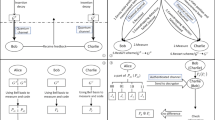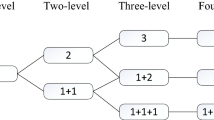Abstract
The main defects of the existing quantum secret sharing schemes are as follows: (1) The identity of the secret sender cannot be confirmed. Receivers of shared secret information may be vulnerable to Trojan attacks; (2) If a malicious attacker Eve impersonates the identity of the receiver, she can finally obtain all the information of the secret that Alice shared; (3) In the process of secret recovery, it is necessary to transmit qubits among all participants involved in secret recovery. Sometimes, the same particle needs to be operated on by all participants to achieve secret sharing, which increases the possibility of eavesdropping and also increases the probability of errors. In this work, we proposed a quantum secret sharing scheme with authentication, the receiver performs corresponding operations on qubits of Greenberger-Horne-Zeilinger(GHZ) state based on the key string calculated by the shared identity number and random Error Correction Code(ECC), the secret sender can calculate the corresponding measurement basis(MB) through the information she has, and then inform the measurement party. This process realizes the mutual authentication between the sender and the receiver. It can protect against identity impersonation attacks, through the ECC verification, it also can resist intercept-resend attacks.

Similar content being viewed by others
References
Bennett, C.H., Brassard, G.: Quantum cryptography: Public key distribution and con tos5. In: Proceedings of the International Conference on Computers, Systems and Signal Processing, pp. 175–179 (1984)
Blakley, G.R.: Safeguarding cryptographic keys. In: Managing Requirements Knowledge, International Workshop on, pp. 313–313. IEEE Computer Society (1979)
Chen, Y.A., Zhang, A.N., Zhao, Z., Zhou, X.Q., Lu, C.Y., Peng, C.Z., Yang, T., Pan, J.W.: Experimental quantum secret sharing and third-man quantum cryptography. Phys. Rev. Lett. 95(20), 200502 (2005)
Cleve, R., Gottesman, D., Lo, H.K.: How to share a quantum secret. Phys. Rev. Lett. 83(3), 648 (1999)
Dou, Z., Xu, G., Chen, X.B., Niu, X.X., Yang, Y.X., Yang, Y.: Searching for optimal quantum secret sharing scheme based on local distinguishability. Quantum Inf. Process. 19(10), 1–19 (2020)
Fortescue, B., Gour, G.: Reducing the quantum communication cost of quantum secret sharing. IEEE Trans. Inf. Theory 58(10), 6659–6666 (2012)
González-Guillén, C.E., Vasco, M.I.G., Johnson, F., del Pozo, A.L.P.: Concerning quantum identification without entanglement. arXiv:2003.12095 (2020)
Hao, C., Wenping, M.: (t, n) threshold quantum state sharing scheme based on linear equations and unitary operation. IEEE Photonics J. 9(1), 1–7 (2017)
Hillery, M., Bužek, V., Berthiaume, A.: Quantum secret sharing. Phys. Rev. A 59(3), 1829 (1999)
Karimipour, V., Asoudeh, M.: Quantum secret sharing and random hopping: using single states instead of entanglement. Phys. Rev. A 92(3), 030301 (2015)
Kogias, I., Xiang, Y., He, Q., Adesso, G.: Unconditional security of entanglement-based continuous-variable quantum secret sharing. Phys. Rev. A 95(1), 012315 (2017)
Lau, H.K., Weedbrook, C.: Quantum secret sharing with continuous-variable cluster states. Phys. Rev. A 88(4), 042313 (2013)
Lu, H., Zhang, Z., Chen, L.K., Li, Z.D., Liu, C., Li, L., Liu, N.L., Ma, X., Chen, Y.A., Pan, J.W.: Secret sharing of a quantum state. Phys. Rev. Lett. 117(3), 030501 (2016)
Medeiros, R.A., Assis, F.M.: Zero-error capacity of a quantum channel. In: ICT (2004)
Pilaram, H., Eghlidos, T.: An efficient lattice based multi-stage secret sharing scheme. IEEE Trans. Depend. Secure Comput. 14(1), 2–8 (2015)
Rahaman, R., Parker, M.G.: Quantum scheme for secret sharing based on local distinguishability. Phys. Rev. A 91(2), 022330 (2015)
Schmid, C., Trojek, P., Bourennane, M., Kurtsiefer, C., Żukowski, M., Weinfurter, H.: Experimental single qubit quantum secret sharing. Phys. Rev. Lett. 95(23), 230505 (2005)
Shamir, A.: How to share a secret. Commun. ACM 22(11), 612–613 (1979)
Singh, S.K., Srikanth, R.: Generalized quantum secret sharing. Phys. Rev. A 71(1), 012328 (2005)
Tavakoli, A., Herbauts, I., Żukowski, M., Bourennane, M.: Secret sharing with a single d-level quantum system. Phys. Rev. A 92(3), 030302 (2015)
Tsai, C.W., Yang, C.W., Lin, J.: Multiparty mediated semi-quantum secret sharing protocol. arXiv:2102.06846 (2021)
Wang, J., Li, L., Peng, H., Yang, Y.: Quantum-secret-sharing scheme based on local distinguishability of orthogonal multiqudit entangled states. Phys. Rev. A 95(2), 022320 (2017)
Wang, J., Zhang, Q., Tang, C.J.: Multiparty simultaneous quantum identity authentication based on entanglement swapping. arXiv:ph/0605006(2006)
Yang, Y.H., Gao, F., Wu, X., Qin, S.J., Zuo, H.J., Wen, Q.Y.: Quantum secret sharing via local operations and classical communication. Sci. Rep. 5(1), 1–9 (2015)
Yuan, H., Liu, Y.M., Pan, G.Z., Zhang, G., Zhou, J., Zhang, Z.J.: Quantum identity authentication based on ping-pong technique without entanglements. Quantum Inf. Process. 13(11), 2535–2549 (2014)
Author information
Authors and Affiliations
Corresponding author
Additional information
Publisher’s Note
Springer Nature remains neutral with regard to jurisdictional claims in published maps and institutional affiliations.
Rights and permissions
About this article
Cite this article
Zhang, XL., Zuo, LY. & Yin, SL. Authenticable Quantum Scheme for Secret Sharing Based on Local Distinguishability. Int J Theor Phys 60, 3396–3403 (2021). https://doi.org/10.1007/s10773-021-04896-9
Received:
Accepted:
Published:
Issue Date:
DOI: https://doi.org/10.1007/s10773-021-04896-9




